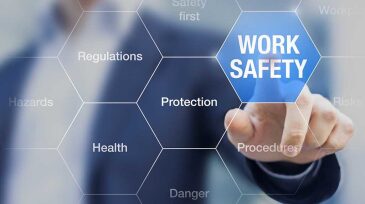safety
-
Safety technologies, procedures, policies, and programs have all evolved, yet there still remains a lot of work to do in many industries and workplaces to transform safety behaviors and attitudes.
-
The National Offshore Petroleum Safety and Environmental Management Authority has released its Annual Offshore Performance Report for the year ending 31 December 2016.
-
How much value are you obtaining from your safety communication and training efforts?
-
The American Society of Safety Engineers (ASSE), the world’s oldest professional safety organization, has crafted an “OSHA Reform Blueprint” that details its priorities and vision for the Occupational Safety and Health Administration (OSHA) in a time of political change.
-
Behind the use of most drones and unmanned aerial vehicles is the issue of safely and legally operating beyond the visual line of sight (BVLOS). Jim Cieplak talks about his work with Harris Corporation and BVLOS solutions.
-
The new economic environment known as “lower for longer” has had no small effect on offshore safety, said a panel of experts at the 2017 Offshore Technology Conference.
-
The SPE technical director of Production and Facilities discusses the role process and occupational safety play in oil and gas operations.
-
Various industry experts discussed the progress of an initiative led by SPE and BSEE to develop a safety data-sharing framework to help mitigate potential risk in operations.
-
With the US Bureau of Safety and Environmental Enforcement as a cochair of the steering committee, SPE held a 2-day summit in April to discuss the development and implementation of an industrywide safety-data sharing framework.
-
Past experiences with problematic situations often drive the decision-making process, and while experience may be helpful, it can also lead to the development of biases that hamper an organization’s ability to manage dynamic environments such as unconventional projects.







